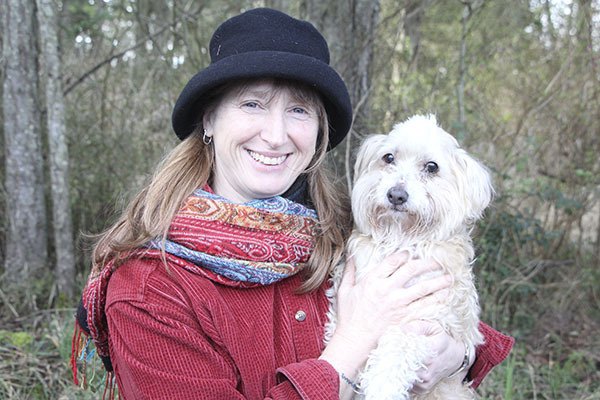When “death by chocolate” cupcakes are served, you know it’s going to be a good meeting. Libby Garcia held her first Death Cafe session on Orcas in January, and a group of 75 people showed up.
“It was so well attended, I was shocked,” she said.
The international phenomenon offers a place to discuss death while eating cake and drinking tea.
The model was developed by Jon Underwood and Sue Barsky Reid, based on the ideas of Bernard Crettaz. Death Cafes have spread quickly across Europe, North America, Australia and Asia. Since 2011, there have been 1,674 meetings.
The cafes don’t run on an agenda or feature a speaker – they are centered around conversation. If the attendance is large enough, participants may be sectioned into small groups. People can read poems, sing a song or ask questions about hospice. The only rule is: there are no rules.
“It’s not grief counseling and it’s not a therapy session, but it’s important for people to talk about whatever they want,” said Garcia, who is a nurse at Orcas Medical Center. “In small communities, sometimes it’s hard to open up because you know everyone. But the group is intended to be 100 percent confidential.”
The event on Orcas was so popular that Garcia will be holding another one on Lopez in April and then a fall session on San Juan and Orcas. The Lopez Death Cafe is Sunday, May 3, 2:30-4:30 p.m. at Lopez Public Library.
Garcia’s family settled on Orcas in 1946, and both of her grandmothers were war nurses. Her grandmother Helen Buchan ran an American Red Cross nursing station from her home. As a nurse, Garcia has worked in emergency rooms and hospice – both of which inspired her to start a group conversation about death and help educate people about advanced directives. While living in Bellingham, she attended her first Death Cafe.
“You have suffering that is inherent in every diagnosis, but there is additional suffering from people not ready for death,” she said. “I want to help decrease end-of-life suffering.”
During her time in Bellingham, Garcia saw the Death Cafes bring people together for a profound sense of community. Despite death being one of the few things we all can count on happening, it is still a very difficult topic for many people to explore. But Garcia says it hasn’t always been that way.
“All of the important events of the family, like birth, death and marriage, used to happen in people’s homes, but now they are done in institutions,” she said. Garcia is now seeing a shift in how people prepare themselves for death. Green burials are becoming more popular, and Washington state has two cemeteries that offer it. A green or natural burial is the interment of the body in soil in a way that allows the body to recycle naturally.
In 2008, Washingtonians approved the “Death with Dignity” act, which allows terminally ill adults to request lethal doses of medication from physicians.
“There are all these new ways to honor our dying,” she said.
For more info, email lizabelwrites@yahoo.com.



